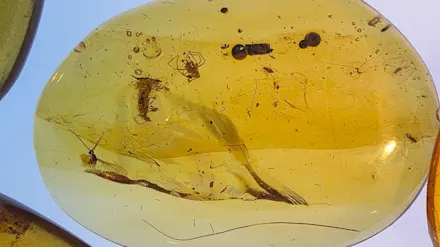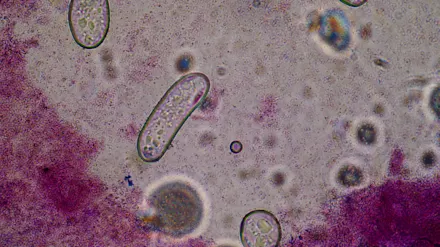
Featured news
Scientists reveal our best- and worst-case scenarios for a warming Antarctica
New study on the Antarctic Peninsula shows that the choices we make in the next decade will determine Antarctica’s fate for centuries


Featured news
New study on the Antarctic Peninsula shows that the choices we make in the next decade will determine Antarctica’s fate for centuries

Featured news
At Frontiers, we bring some of the world’s best research to a global audience. But with tens of thousands of articles published each year, it’s impossible to see all that research in the same way scientists do. Here are some images that showcase some of the newest findings published in the last month.

Featured news
A bacterial strain thriving in icy environments could sharpen antibiotic resistance crisis – or help solve it, new research shows

Health
Neural synchrony between mothers and children doesn’t require native language proficiency




Health
Aging effect of specific PFAS is found to be greatest in men between 50 and 65

Health
Wastewater contains untapped resources that, if reclaimed, could power agriculture, global sanitation, and its own treatment to help us meet UN SDG goals, according to a review published in Frontiers in Science.

Health
Neural synchrony between mothers and children doesn’t require native language proficiency

Health
A key technique of cognitive behavioral therapy for panic disorder is interoceptive exposure, where patients learn to tolerate the physical effects of panic attacks through repeated simulated exposure. Now, scientists have shown in a randomized controlled trial that brief intermittent intensive exercise is more effective at reducing the severity of panic disorder than relaxation therapy.

Neuroscience
Dr Maria Santacà describes how not only how fish and birds perceive their worlds, but also how ecological pressures shape the evolution of perception.

Neuroscience
Scientists find that words you’ve been told to recall are better remembered than words with negative emotional connotations — but surprisingly, sleeping doesn’t help.

Neuroscience
Listening to joyful music helped study participants with motion sickness recover better than other participants — while sad music helped less than doing nothing.

Neuroscience
In well-designed gardens, our gaze shifts quicker and more often. Researchers believe this could be key to understanding the relaxing effects gardens can have on viewers.

Environment
Scientists use insects trapped in amber to understand ecosystems that died out millions of years ago

Environment
New study on the Antarctic Peninsula shows that the choices we make in the next decade will determine Antarctica’s fate for centuries

Environment
As drought and rising organizational demands for larger hunting operations hit at the same time, ancient hunters adapted to severe droughts by shifting the way and where they hunted, study shows

Environment
New footprint identification technology can identify ecosystem-critical species which were once only distinguishable by DNA.

Psychology
With less than one month before the holidays, many of us are gearing up for the annual Christmas shopping extravaganza. We’re highlighting five articles you won’t want to miss before hitting the shops.

Psychology
Scientists find that people mostly avoid social media ads when they see them, but many ads blend in seamlessly.

Psychology
Physiological rhythms could explain why Italian university students were more likely to fail exams early or late in the day.

Psychology
Study participants asked to choose whether to empathize with or describe people preferred to empathize with groups, despite finding it difficult and distressing.

Space sciences and astronomy
Guest editorial by Prof Heidi Newberg, an astrophysicist at Rensselaer Polytechnic Institute and author of a new Frontiers in Astronomy and Space Sciences article

Space sciences and astronomy
Scientists successfully identify microbe fossils in terrestrial rocks like those found on Mars, opening up the possibility of searching for fossils on the Red Planet.

Space sciences and astronomy
Scientists explored microbial movement as a possible biosignature to detect life on Mars and beyond, cheaper and faster than ever before.

Space sciences and astronomy
Space belongs to no-one, yet many nations and private entities now plan to lay their claim on its resources. In a recent Frontiers in Space Technologies article, Nishith Mishra, Martina Elia Vitoloni and Dr Joseph Pelton shared their thoughts about how plans to exploit the ocean floors could impact the way resources from space are used and managed.
Get the latest research updates, subscribe to our newsletter